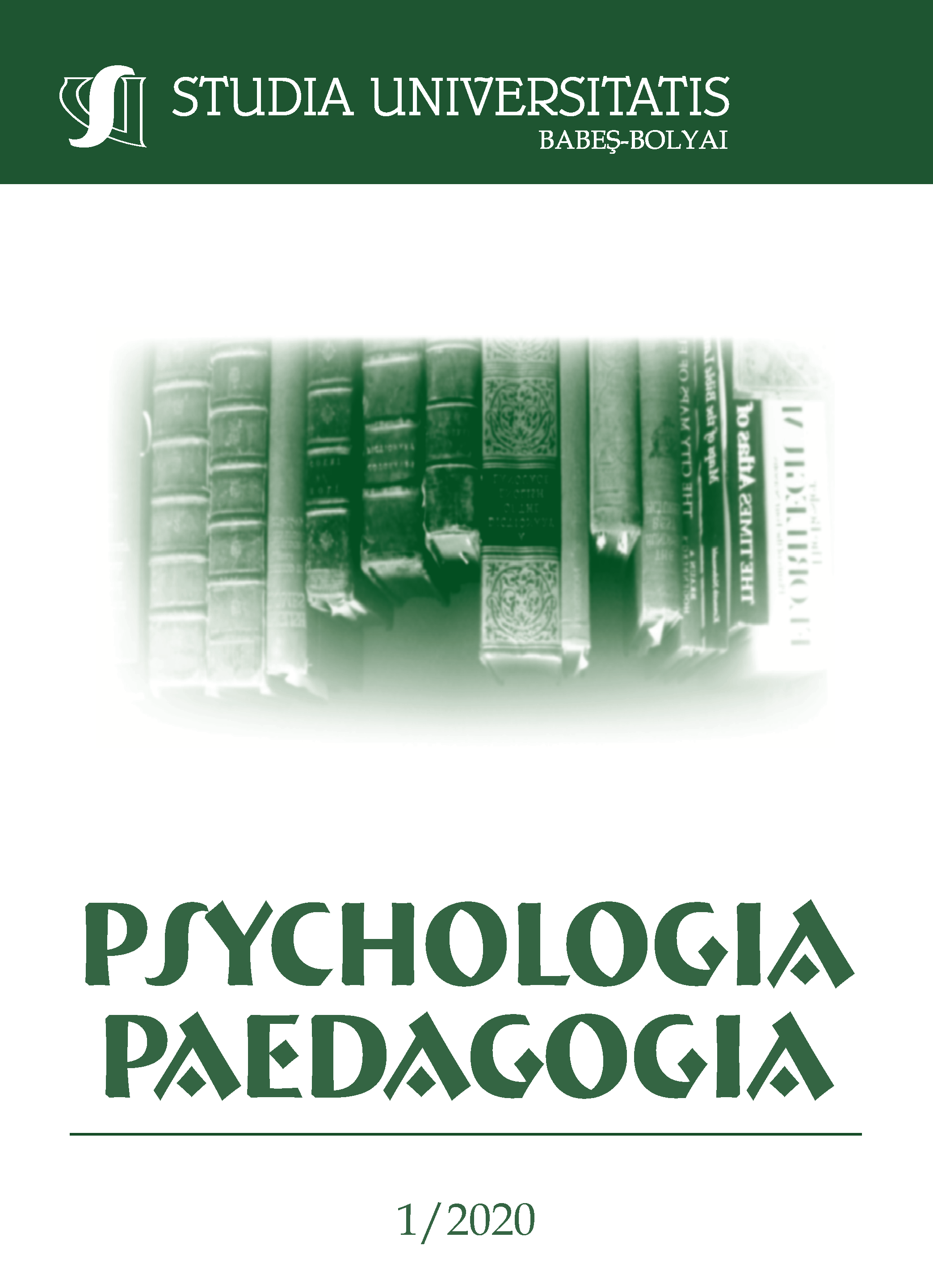A BRIEF ANALYSIS OF THE PROS AND CONS OF ONLINE ADAPTIVE LEARNING AND EDUCATION
DOI:
https://doi.org/10.24193/subbpsyped.2020.1.02Keywords:
adaptive learning, teaching, education, online, classical, students, teachers, schools, universitiesAbstract
Ever since ancient times, education has been a topic of interest for many civilizations. Seen as a means of progress, education was the main focus for some countries like Finland, and almost ignored by others. In the last decade, a new term has appeared in regard to education: adaptive learning. Used almost ubiquitous, the term has gained fame due to its presence in a 2013 program launched by the Gates Foundation, abbreviated ALMAP (Adaptive Learning Market Acceleration Program). This program changed into a grant that funded 14 higher education organizations to implement 9 adaptive learning products into 23 courses. The aim was to test and gather data on the impact of these programs of student outcomes. Almost instantly, the term became famous and used by many in their marketing and promotional strategies. In this brief analysis, we discuss the definitions, terminology, use, and pros and cons of adaptive learning in online education.References
Bloom, B.S. (1956). Taxonomy of educational objectives: The classification of educational goals. New York, NY: Longmans, Green.
Bloom, B.S. (1971). Mastery learning. In J.H. Block (Ed.), Mastery learning: Theory and practice (pp. 47–63). New York: Holt, Rinehart & Winston.
Bloom, B.S. (1984). The 2 sigma problem: The search for methods of group instruction as effective as one-to-one tutoring. Educational Researcher, 13(6), 4-16.
Brusilovsky, P., & Peylo, C. (2003). Adaptive and intelligent web-based educational systems. International Journal of Artificial Intelligence in Education, 13(2-4), 159-172.
Cavanagh, T., Chen, B., Lahcen, R. & Paradiso, J. (2020). Constructing a Design Framework and Pedagogical Approach for Adaptive Learning in Higher Education: A Practitioner's Perspective. International Review of Research in Open and Distributed Learning, 21 (1), 173–197. https://doi.org/10.19173/irrodl.v21i1.4557
Dziuban, Charles; Moskal, Patsy; Johnson, Constance; and Evans, Duncan (2017) "Adaptive Learning: A Tale of Two Contexts," Current Issues in Emerging eLearning: Vol. 4: Iss. 1, Article 3. Available at: https://scholarworks.umb.edu/ciee/vol4/iss1/3
Educause (2017). 7 things you should know about adaptive learning. Retrieved from https://library.educause.edu/~/media/files/library/2017/1/eli7140.pdf
Educause (2018). NMC Horizon Report. Retrieved from https://library.educause.edu/resources/2018/8/2018-nmc-horizon-report
Elmunsyah, H., Hidayat, W., Patmanthara, S., Dwiyanto, F., Utomo, M. & Kusumadyahdewi, K. (2020). Adaptive learning system in open educational resource digital sharing community as a media for learning autonomous students. IOP Conference Series: Materials Science and Engineering. 732. 012110. 10.1088/1757-899X/732/1/012110.
Freda, B. (2016). Clearing the hurdles to adaptive learning: Overcoming six challenges encountered in adopting adaptive learning. Retrieved from https://universitybusiness.com/clearing-the-hurdles-to-adaptive-learning/
Huong M.T. (2016). Integrating learning styles and adaptive e-learning system: Current developments, problems and opportunities, Computers in Human Behavior, Volume 55, Part B, 1185-1193.
Karam, R., Pane, J.F., Griffin, B.A., Robyn, A., Phillips, A., & Daugherty, L. (2016). Examining the implementation of technology-based blended algebra I curriculum at scale. Education Technology, Research & Development, 65(2), 399–425.
Latham, A., Crockett, K., & McLean, D. (2014). An adaptation algorithm for an intelligent natural language tutoring system. Computers & Education, 71, 97–110.
Lee, J., & Park, O. (2008). Adaptive instructional systems. In J. M Spector, M. D. Merrill, J. van Merrienboer, & M. P. Driscoll (Eds.), Handbook of research on educational communications and technology (3rd ed., pp. 469-484). New York: Lawrence Erlbaum.
Liu, J. & Lim, K.H. (2020). Self-Evolving Adaptive Learning for Personalized Education.
Means, B., Toyama, Y., Murphy, R., Bakia, M., & Jones, K. (2010). Evaluation of evidence-based practices in online learning: A meta-analysis and review of online learning studies. Washington, DC: Center for Technology. in Learning.
Miaomiao, Z. & Rui, Z. (2020). The Hotspots and Trends of Adaptive Learning: A Visualized Analysis Based on CiteSpace. International Journal of Information and Education Technology vol. 10, no. 5, pp. 394-398.
Monova-Zheleva, M. (2005). Adaptive learning in web-based educational environments, Cybernetics and Information Technologies, vol. 5, no. 1, pp. 44-55.
Murray, M.C., & Pérez, J. (2015). Informing and performing: A study comparing adaptive learning to traditional learning. Informing Science, International Journal of an Emerging Transdiscipline, 18, 111-125. Retrieved from http://www.inform.nu/Articles/Vol18/ISJv18p111-125Murray1572.pdf
Nakic, J., Granic, A., & Glavinic, V. (2015). Anatomy of student models in adaptive learning systems: A systematic literature review of individual differences from 2001 to 2013. Journal of Educational Computing Research, 51(4), 459-489. doi:10.2190/EC.51.4.e
Näykki, P., Laru, J., Vuopala, E., Siklander, P. & Järvelä, S. (2019) Affective Learning in Digital Education—Case Studies of Social Networking Systems, Games for Learning, and Digital Fabrication. Front. Educ. 4:128. doi: 10.3389/feduc.2019.00128
Nedungadi, P. & Raman, R. (2012). A new approach to personalization: Integrating e-learning and m-learning. Educational Technology Research and Development. 60. 10.1007/s11423-012-9250-9.
Phillips, A., Pane, J.F., Reumann-Moore, R., Oluwatosin S. (2020) Implementing an adaptive intelligent tutoring system as an instructional supplement. Education Tech Research Dev (2020). https://doi.org/10.1007/s11423-020-09745-w
Sangineto, E., Capuano, N., Gaeta, M., & Micarelli, A. (2008). Adaptive course generation through learning styles representation. Universal Access in the Information Society, 7(1–2), 1–23.
Shelle, G., Earnesty, D., Pilkenton, A. & Powell, E. (2018). Adaptive Learning: An Innovative Method for Online Teaching and Learning. Journal of Extension. Special Issue on Innovation, Volume 56, No 5, Feature v56-5a5. Retrieved from https://www.joe.org/joe/2018september/a5.php?fbclid=IwAR23LwDvclZBQFuZDxl2HBelPtUH_rVhom47niqRUXoYEfSDs0eMqN7ADz0
Stracke, C.M., and Tan, E. (2018). “The quality of open online learning and education,” in Rethinking Learning in The Digital Age - Making the Learning Sciences Count: The International Conference of the Learning Sciences (ICLS) 2018, eds J. Kay, R. Luckin, M. Mavrikis, and K. Porayska-Pomsta (London: International Society of the Learning Sciences).
Downloads
Published
How to Cite
Issue
Section
License
Copyright (c) 2020 Studia Universitatis Babeș-Bolyai Psychologia-Paedagogia

This work is licensed under a Creative Commons Attribution-NonCommercial-NoDerivatives 4.0 International License.





